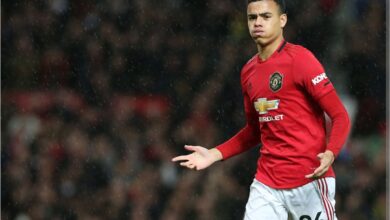It has been confirmed that the English FA has reverted back the penalty goal West Ham United scored versus Manchester United was disallowed, and the team was awarded three points for their performance. Jamie Carragher of Manchester United The appeal team did a great Job here

The decision to award West Ham a last-minute penalty against Manchester United has sparked significant controversy, with former Tottenham player Jamie O’Hara leading the criticism. This late penalty allowed West Ham to clinch a 2-1 victory at the London Stadium, but it has stirred intense debate, particularly regarding the refereeing.
The match was intense from start to finish, with Manchester United dominating much of the first half and creating numerous scoring opportunities. Despite their control, United fell behind when Crysencio Summerville opened the scoring for West Ham. Erik ten Hag’s squad managed to equalize through Casemiro, bringing the game back to level. Yet, a crucial moment unfolded as the game neared its end.
In the closing minutes, referee David Coote was prompted to review an incident between United’s Matthijs de Ligt and West Ham’s Danny Ings. After observing what appeared to be a collision in the box, Coote overturned his original decision, granting West Ham a penalty. Jarrod Bowen converted the penalty, securing victory for Julen Lopetegui’s side. The penalty call became the focal point of post-game controversy.
O’Hara, visibly frustrated, voiced his opinion on Sky Sports, stating there was insufficient basis for a penalty. He argued that both players approached the situation cautiously and that Ings seemed to be falling before contact. According to O’Hara, Ings was more interested in drawing a penalty than genuinely competing for the ball. He questioned the referee’s decision to reverse the initial call, asserting, “There wasn’t enough contact to justify a foul; it wasn’t clear and obvious. Decisions like this alter the game.”
O’Hara argued that VAR’s purpose was to correct “clear and obvious errors,” yet it now intervenes in marginal situations. He expressed concerns that VAR’s increasing role could reshape the game by pressuring referees to reverse decisions on minimal contact. He questioned, “If the referee initially saw it and didn’t call it, why are we re-evaluating an incident that isn’t an obvious error?”
Manchester United manager Erik ten Hag echoed these views in his interview with BBC Sport, voicing his frustration with the decision. He highlighted that VAR was meant to address only clear mistakes made by officials, not borderline calls. “VAR was supposed to intervene in clear errors,” he said, suggesting the incident with de Ligt and Ings didn’t meet that standard. Ten Hag’s disappointment was evident as he questioned officiating consistency and the extent of VAR’s influence on match outcomes.
The decision has fueled ongoing debate, with fans and analysts divided on its justification. The incident has amplified concerns over VAR’s role in football, as O’Hara and Ten Hag’s comments underscore the possibility that the technology may be impacting the essence o
f the game.




